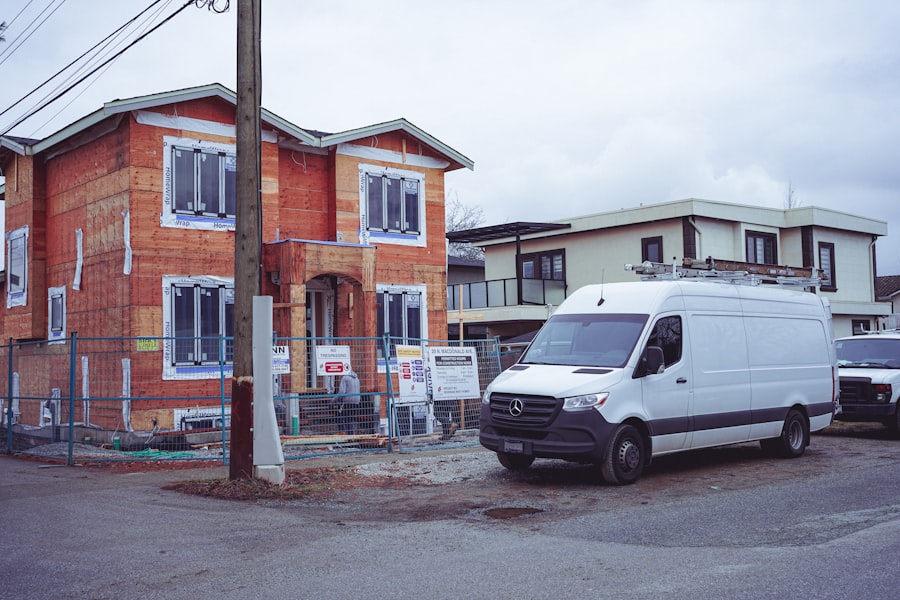Mobile homes, often referred to as manufactured homes, have gained significant popularity as an affordable housing option. Unlike traditional homes, mobile homes are built in factories and transported to their designated locations, which can be on rented land or owned plots. When mobile homes are placed on land that the owner also possesses, they offer a unique blend of mobility and permanence.
This arrangement allows homeowners to enjoy the benefits of land ownership while maintaining the flexibility that mobile homes provide. One of the key advantages of placing a mobile home on land is the potential for increased property value. As the land appreciates over time, so too can the value of the mobile home, especially if it is well-maintained and upgraded.
Additionally, owning land can provide a sense of stability and control over one’s living environment, allowing homeowners to make modifications to both the home and the surrounding property. However, it is essential to understand the implications of this choice, including maintenance responsibilities and local regulations that may affect land use.
Key Takeaways
- Understand the basics and benefits of owning mobile homes on land before purchasing.
- Choose a location that fits your lifestyle, needs, and long-term plans.
- Set a realistic budget, including purchase price, taxes, and maintenance costs.
- Research local zoning laws and regulations to ensure compliance and avoid issues.
- Thoroughly inspect the property’s condition and negotiate terms before finalizing the sale.
Finding the Right Location
Choosing the right location for a mobile home is crucial and can significantly impact your quality of life. Factors such as proximity to work, schools, healthcare facilities, and recreational areas should be considered. A location that offers easy access to essential services can enhance convenience and overall satisfaction with your living situation.
For instance, a mobile home situated near a well-rated school district can be particularly appealing for families with children, while those who prioritize outdoor activities may seek locations near parks or natural reserves. In addition to convenience, the character of the neighborhood plays a vital role in your decision-making process. Researching local demographics, crime rates, and community amenities can provide insight into whether a particular area aligns with your lifestyle preferences.
Furthermore, consider the long-term prospects of the location; areas undergoing development or revitalization may offer better investment opportunities compared to those in decline. Engaging with local residents and visiting potential neighborhoods at different times of day can also help you gauge the community atmosphere and determine if it feels like home.
Considering Your Budget

Budgeting for a mobile home on land involves more than just the purchase price of the home itself; it encompasses various costs associated with land acquisition, utilities, maintenance, and property taxes. Establishing a comprehensive budget is essential to ensure that you can afford not only the initial investment but also ongoing expenses. For example, while mobile homes can be more affordable than traditional houses, costs such as site preparation, foundation work, and utility connections can add up quickly.
When evaluating your budget, it is also important to consider potential financing options. Many lenders offer specific loans for mobile homes on land, which may have different terms compared to conventional mortgages. Understanding these financial products and their implications on your overall budget will help you make informed decisions.
Additionally, setting aside funds for unexpected repairs or upgrades is wise; mobile homes may require maintenance over time, just like any other property.
Researching Zoning Laws and Regulations
| Metric | Description | Typical Value/Range | Importance |
|---|---|---|---|
| Number of Zoning Categories | Different zoning classifications within a jurisdiction (e.g., residential, commercial, industrial) | 5 – 15 | High |
| Average Review Time | Time taken to review zoning applications or changes | 2 – 12 weeks | Medium |
| Setback Requirements | Minimum distance buildings must be from property lines | 5 – 50 feet | High |
| Maximum Building Height | Allowed height limit for structures in a zone | 20 – 100 feet | High |
| Floor Area Ratio (FAR) | Ratio of building floor area to lot size | 0.5 – 5.0 | High |
| Permitted Uses | Types of activities or businesses allowed in each zone | Varies by zone | High |
| Variance Approval Rate | Percentage of variance requests granted | 10% – 40% | Medium |
| Public Hearing Frequency | Number of public hearings held annually for zoning matters | 5 – 30 | Medium |
| Compliance Rate | Percentage of developments adhering to zoning laws | 85% – 98% | High |
Before purchasing land for a mobile home, it is imperative to research local zoning laws and regulations that govern land use in your desired area. Zoning laws dictate what types of structures can be built on a property and how they can be used. Some areas may have restrictions on mobile homes or require specific permits for installation.
Understanding these regulations will help you avoid potential legal issues down the line. In addition to zoning laws, it is essential to investigate any homeowners’ association (HOA) rules that may apply if you are considering a property within an established community. HOAs often have their own set of guidelines regarding property appearance, maintenance standards, and even restrictions on mobile homes.
Familiarizing yourself with these rules will ensure that you are prepared to comply with any requirements and avoid conflicts with neighbors or governing bodies.
Assessing the Condition of the Property
Once you have identified a potential piece of land for your mobile home, conducting a thorough assessment of the property is crucial. This evaluation should include an inspection of the land itself as well as any existing structures or utilities. Key factors to consider include soil quality, drainage patterns, and access to essential services such as water and electricity.
Poor soil conditions or inadequate drainage can lead to significant issues down the line, including flooding or foundation problems. Additionally, if there are existing structures on the property—such as sheds or garages—assessing their condition is important. These structures may require repairs or renovations before they can be used effectively.
Furthermore, checking for any environmental concerns, such as contamination or proximity to hazardous materials, is vital for ensuring your safety and long-term enjoyment of the property. Engaging a professional inspector can provide valuable insights into these aspects and help you make an informed decision.
Negotiating the Purchase

Negotiating the purchase of land for your mobile home requires careful consideration and strategy. Start by gathering information about comparable properties in the area to understand market trends and establish a fair price range. This knowledge will empower you during negotiations and help you make a compelling case for your offer.
Be prepared to articulate why you believe your proposed price is reasonable based on your research. During negotiations, it is essential to remain flexible and open-minded while also being firm about your budget constraints. Consider including contingencies in your offer that allow for inspections or financing approvals; this can provide you with an exit strategy if unforeseen issues arise during the purchasing process.
Building rapport with the seller can also facilitate smoother negotiations; expressing genuine interest in the property and understanding their motivations can create a more collaborative atmosphere.
Securing Financing for Your Purchase
Securing financing for a mobile home on land involves navigating various options tailored specifically for this type of purchase. Traditional mortgage lenders may not always offer loans for mobile homes due to their classification as personal property rather than real estate. However, there are specialized lenders who focus on manufactured home financing and can provide loans that cover both the home and the land.
When exploring financing options, consider factors such as interest rates, loan terms, and down payment requirements. Some lenders may offer government-backed loans through programs like FHA or VA loans specifically designed for manufactured homes. Additionally, it is wise to obtain pre-approval before making an offer on a property; this not only strengthens your negotiating position but also gives you a clear understanding of your budget constraints.
Finalizing the Sale and Moving In
Once you have secured financing and successfully negotiated the purchase agreement for your land and mobile home, it’s time to finalize the sale. This process typically involves working with a title company or real estate attorney who will ensure that all legal documents are properly executed and that ownership is transferred smoothly. It’s crucial to review all paperwork carefully before signing; any discrepancies or misunderstandings should be addressed immediately.
After closing on the property, preparing for your move-in day involves several logistical considerations. Coordinating the transportation of your mobile home to its new location requires careful planning; hiring experienced movers who specialize in mobile homes can help ensure that this process goes smoothly. Additionally, setting up utilities such as water, electricity, and sewage connections should be prioritized before moving in to create a comfortable living environment from day one.
As you settle into your new home on land, take time to personalize your space and establish connections within your community. Engaging with neighbors and participating in local events can foster a sense of belonging and enhance your overall living experience. Embracing this new chapter in your life will allow you to fully appreciate the unique advantages that come with owning a mobile home on land.



